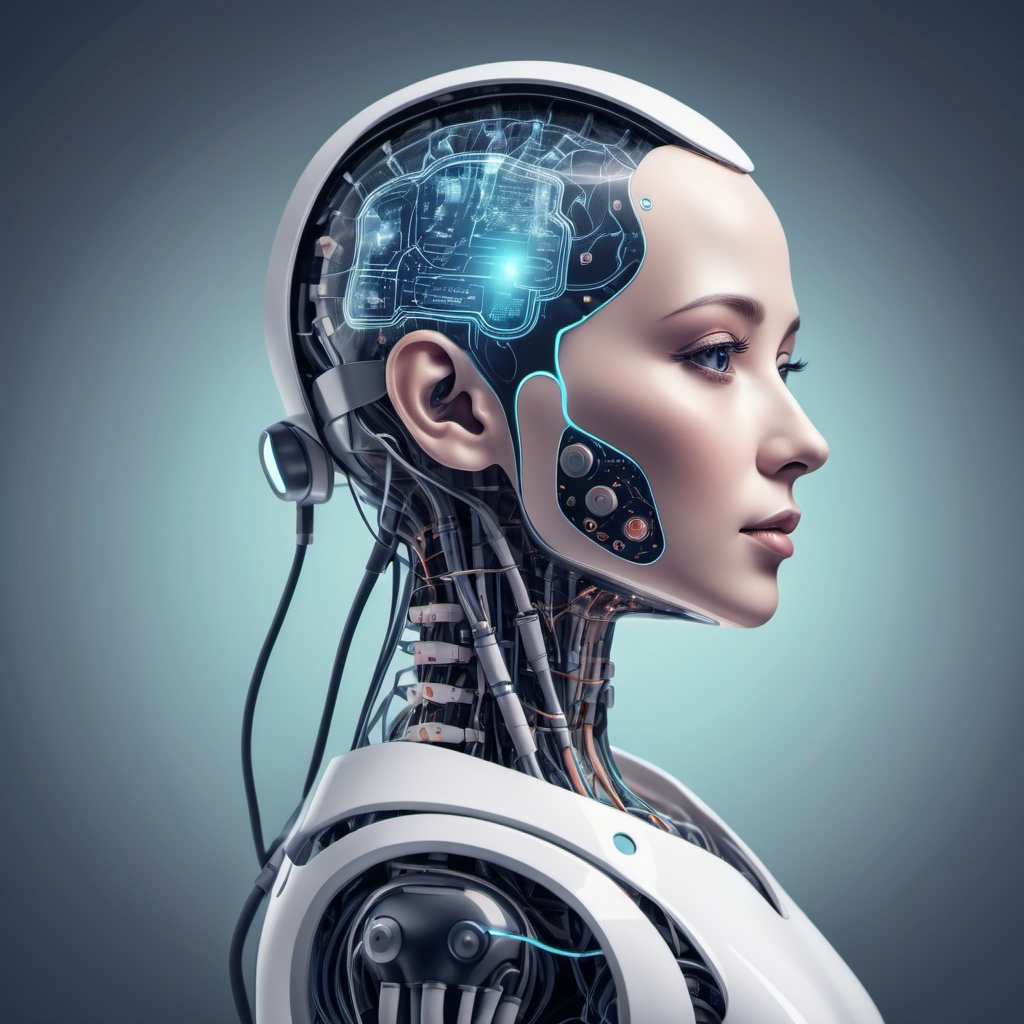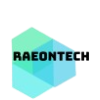In the rapidly evolving healthcare landscape, a new frontier is emerging that promises to revolutionize how we approach medicine, patient care, and health management. This frontier is HealthTech AI – a powerful convergence of healthcare, cutting-edge technology, and artificial intelligence that is reshaping the medical world as we know it.
The Dawn of HealthTech AI
HealthTech AI represents the vanguard of medical innovation, where the precision of artificial intelligence meets the complexity of human health. This revolutionary field is not just about introducing new technologies into healthcare; it’s about fundamentally reimagining how we detect, treat, and prevent diseases.
At its core, HealthTech AI leverages the immense power of artificial intelligence and machine learning to process and analyze vast amounts of medical data. This data-driven approach is enabling healthcare professionals to make more informed decisions, researchers to uncover new insights, and patients to receive more personalized care than ever before.

The Building Blocks of HealthTech AI
- Artificial Intelligence (AI): The backbone of HealthTech AI, artificial intelligence algorithms can process complex medical information at speeds and scales impossible for human practitioners.
- Machine Learning (ML): A subset of AI, machine learning allows systems to improve their performance over time without explicit programming, crucial for adapting to new medical data and scenarios.
- Big Data Analytics: The healthcare industry generates enormous amounts of data daily. Big data analytics tools help make sense of this information, uncovering patterns and insights that drive better healthcare outcomes.
- Internet of Things (IoT): Connected medical devices and wearables provide a constant stream of patient data, enabling real-time monitoring and early intervention.
- Cloud Computing: Cloud platforms offer the necessary infrastructure to store, process, and share vast amounts of medical data securely and efficiently.
Transformative Applications of HealthTech AI
The integration of AI in healthcare is not just a technological advancement; it’s a complete reimagining of how we approach health and wellness. Let’s delve deeper into some of the most impactful applications of HealthTech AI:
1. Predictive Diagnostics and Early Detection
One of the most promising aspects of HealthTech AI is its ability to predict and detect diseases at their earliest stages. By analyzing patterns in patient data, including genetic information, lifestyle factors, and medical history, AI algorithms can identify individuals at high risk for certain conditions before symptoms even appear. For instance, researchers have developed AI models that can predict the likelihood of breast cancer up to five years in advance, using mammogram results and clinical data. This early detection can significantly improve treatment outcomes and potentially save countless lives.
2. Personalized Treatment Plans
Every patient is unique, and HealthTech AI is making it possible to tailor treatment strategies to individual needs with unprecedented precision. By analyzing a patient’s genetic makeup, medical history, lifestyle, and even gut microbiome, AI can help doctors create highly personalized treatment plans. This approach, often referred to as precision medicine, is particularly promising in fields like oncology. AI systems can analyze the genetic profile of a patient’s tumor and recommend the most effective combination of treatments, potentially improving outcomes and reducing side effects.
3. Drug Discovery and Development
The process of developing new drugs is traditionally time-consuming and expensive. HealthTech AI is accelerating this process dramatically. AI algorithms can sift through vast databases of molecular structures, predict how different compounds will interact with target proteins, and even design entirely new molecules tailored to specific medical needs. This AI-driven approach has already yielded results. For example, in 2020, an AI system developed by DeepMind was able to predict protein structures with near-atomic accuracy, a breakthrough that could revolutionize drug discovery and our understanding of diseases at the molecular level.
4. Advanced Medical Imaging Analysis
AI is proving to be an invaluable tool in the field of medical imaging. Advanced AI systems can analyze medical images such as X-rays, MRIs, and CT scans with a level of detail and speed that surpasses human capabilities. These systems can detect subtle anomalies that might be missed by the human eye, leading to earlier and more accurate diagnoses. For example, AI algorithms have been developed that can detect signs of lung cancer in CT scans with greater accuracy than experienced radiologists. This not only improves diagnostic accuracy but also frees up radiologists to focus on more complex cases and patient care.
5. Remote Patient Monitoring and Telemedicine
The combination of IoT devices and AI is enabling unprecedented capabilities in remote patient monitoring. Wearable devices can continuously track vital signs and other health metrics, with AI algorithms analyzing this data in real-time to detect any concerning changes.
This technology is particularly beneficial for managing chronic conditions and elderly care. For instance, AI systems can predict the likelihood of a fall in elderly patients based on subtle changes in their gait or balance, allowing for preventive interventions.
Moreover, the COVID-19 pandemic has accelerated the adoption of telemedicine, and HealthTech AI is playing a crucial role in making these remote consultations more effective. AI-powered chatbots can triage patients, while advanced algorithms can assist doctors in making diagnoses based on symptoms and medical history shared during virtual visits.

The Impact of HealthTech AI on Healthcare Systems
The integration of AI into healthcare is not just changing how we diagnose and treat diseases; it’s transforming entire healthcare systems. Here’s how:
- Improved Efficiency: By automating routine tasks and providing decision support, HealthTech AI is helping healthcare providers work more efficiently. This could help address the growing shortage of healthcare workers worldwide.
- Cost Reduction: AI-driven predictive analytics can help prevent costly emergency interventions by identifying high-risk patients early. Moreover, by optimizing resource allocation and reducing unnecessary treatments, HealthTech AI can significantly lower healthcare costs.
- Enhanced Accessibility: Telemedicine powered by AI is making quality healthcare more accessible, especially in remote or underserved areas.
- Data-Driven Decision Making: HealthTech AI is enabling healthcare organizations to make more informed decisions at both the clinical and administrative levels, leading to better patient outcomes and more efficient operations.
- Empowered Patients: With access to AI-powered health apps and wearables, patients are becoming more engaged in their own health management, leading to better preventive care and lifestyle choices.
Challenges and Ethical Considerations
While the potential of HealthTech AI is immense, it also comes with significant challenges and ethical considerations:
- Data Privacy and Security: The use of vast amounts of sensitive health data raises concerns about privacy and data security. Robust safeguards and clear regulations are necessary to protect patient information.
- Algorithmic Bias: AI systems are only as good as the data they’re trained on. There’s a risk of perpetuating or even exacerbating existing healthcare disparities if these systems are trained on non-diverse datasets.
- Integration with Existing Systems: Implementing AI systems in healthcare requires significant changes to existing infrastructure and workflows, which can be challenging and costly.
- Regulatory Approval: As AI systems become more involved in critical medical decisions, there’s a need for clear regulatory frameworks to ensure their safety and efficacy.
- The Human Touch: While AI can process data and make predictions, the importance of human empathy and intuition in healthcare cannot be overlooked. Striking the right balance between AI capabilities and human care is crucial.

The Future of HealthTech AI
As we look to the future, the potential of HealthTech AI seems boundless. Some exciting prospects include:
- AI-Powered Robotic Surgery: Combining the precision of robots with the intelligence of AI could revolutionize surgical procedures, making them safer and less invasive.
- Advanced Genomic Medicine: AI could help us better understand the human genome, leading to more effective gene therapies and truly personalized medicine.
- Mental Health AI: AI systems are being developed to detect early signs of mental health issues and provide personalized interventions.
- AI-Driven Health Ecosystems: Imagine a fully integrated health system where your wearable device, home environment, and healthcare providers all work together, powered by AI, to keep you healthy.
- Predictive Public Health: AI could help predict and prevent public health crises by analyzing patterns in population health data.
Conclusion
HealthTech AI is not just a buzzword; it’s a transformative force that’s reshaping the landscape of healthcare. From early disease detection to personalized treatment plans, from drug discovery to remote patient monitoring, AI is enhancing every aspect of healthcare.
As we continue to harness the power of artificial intelligence and big data, we move closer to a future where healthcare is more precise, personalized, and accessible to all. However, as we embrace this AI-driven healthcare revolution, we must also navigate the ethical implications and challenges it presents.
The future of healthcare is here, and HealthTech AI powers it. As this field continues to evolve, it promises to bring us closer to a world where everyone can enjoy better health outcomes and a higher quality of life. The journey has just begun, and the possibilities are fascinating.


